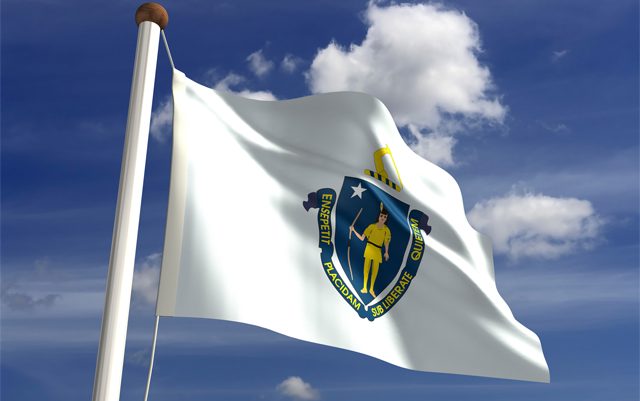When looking at the 5 states that will have recreational marijuana legalization on the ballot this November, it would seem – in theory at least – that Massachusetts has the best chance of passing a measure. A longtime liberal/progressive state that already has medical marijuana and decriminalization laws on the books, MA would be a good place to start for those looking at eventual nationwide legalization.
This is why so many are surprised that the battle over legalization in Massachusetts is going to go down to the wire. Lackluster fundraising combined with a campaign of fear led by the most powerful politicians in the state has managed to suppress support for Question 4.
A new poll from WNEU shows that 52% of likely voters say they support recreational legalization while 42% are opposed. A majority is good news; the bad news is that support is down 6% since the poll WNEU conducted in April.
“Our opponents are using the usual prohibitionist mix of lies, junk science and alarmist rhetoric,” Jim Borghesani, a spokesman for the “Yes on 4” campaign, told The Marijuana Times. “They are using fear tactics regarding increased teen use, which hasn’t happened in other legal states, and increased traffic fatalities, which also hasn’t happened in other states. They are also spreading fear about edible products, which in Massachusetts will be completely under the control of regulators.”
So just what is at stake when it comes to Question 4?
What Would Question 4 Do?
If passed, Question 4 would:
- Allow adults to possess 1 ounce of dried marijuana or 5 grams of concentrate in public. You could have an additional 9 ounces in your home, but it would have to be secured with a lock. Gifts of 1 ounce would be allowed as well.
- Allow marijuana stores in every city and town unless voters in the municipality approved a local ban. Municipalities would have to allow up to 20% of the number of licensed liquor stores. Local governments would be able set a lower limit, but only with the approval of voters in that city or town.
- Allow adults to grow 6 marijuana plants at home with a maximum of 12 per household.
- Require businesses to test marijuana products and adhere to strict packaging and labeling guidelines.
- Impose a 3.75% excise tax on marijuana sales on top of the 6.25% MA sales tax, and allow cities and towns to add a local tax up to 2%. This adds up to a possible 12% tax, which is lower than current tax rates in legalized states like Colorado, Washington and Oregon.
“Question 4 will create a regulated and taxed market that will take commerce out of the hands of street dealers and cartels and put it with licensed, tax-paying businesses who sell safe, inspected product and check IDs,” Jim Borghesani told us. “Question 4 will stop sending the one million regular marijuana users in Massachusetts into the embrace of criminals who also sell heroin and opioids. And Question 4 will create tax revenues that can be used for schools, law enforcement or other important programs.”
Taxes
The issue of taxes has been a major bone of contention between supporters and opponents of Question 4. While supporters contend that the tax rate is high enough, opponents say it’s too low and may not raise enough revenue.
“Any claims that this ballot question would be a revenue generator for the Commonwealth would be fool’s gold. It’s fool’s gold because at this tax rate it may not even cover the full cost of regulating the industry,” said State Senator Jason Lewis, one of the most vocal opponents of Question 4.
This may be a good place to point out that low taxes usually have the effect of increasing tax revenue because they lower prices and spur economic activity. In other words, it’s no stretch of the imagination to see how an 8% sales tax can raise more revenue than a 10% tax when you consider that higher sales usually result from lower prices.
But tax revenue is really not the point. Legalization is about freedom; freedom to consume, possess and grow marijuana and the freedom to get a job is the new, legal marijuana industry.
What Question 4 Does NOT Do
If passed, Question 4 will not legalize marijuana use in public, nor will it allow people to drive under the influence of marijuana. That latter part would present a problem in MA, as it does in all states that legalize, because there really is no reliable way to tell if someone is under the influence of cannabis.
Question 4 would also not change any current policies for employers when it comes to marijuana use. The same problem would come into play here, and it would be up to each employer to make their own rules regarding use.
Who is Funding the Opposition?
Yes on 4’s fundraising woes are a sharp contrast to the deep pockets of the opposition. According to Mike Crawford at Alternet, the “Campaign for a Safe and Healthy Massachusetts” – which is the main group opposing Question 4 – is funded heavily, in part, by the alcohol industry:
While attempting to scare people about the harm of a commercial marijuana industry, the Safe and Healthy campaign has collected a sizable war chest that is partially funded by the alcohol industry, according to campaign finance reports. Beer Distributors of Massachusetts contributed at least $25,000, while Wine & Spirit Wholesalers of Mass one-upped even them with a $50,000 gift.
Then there are the individual beneficiaries. Republican State Rep. Hannah Kane of Shrewsbury, for example, who has campaigned at events against Question 4, has accepted at least $2,500 in contributions from individuals at Austin Liquors, a chain with four stores in her area.
The same benefactors have been contributing to war chests for more than a decade, including that of Lt. Gov. Karyn Polito, whose campaign has received at least $9,000 from individuals at Austin Liquors, not to mention more than $11,000 from executives at Horizon Beverage Group, a regional wholesaler of beers, wines, and spirits.
The list of these relationships includes Gov. Baker, who has taken more than double that amount from Horizon, as well as other noted Question 4 adversaries like State Rep. Todd Smola, Speaker Deleo, and State Senators Richard Ross and Vinny deMacedo.
A Battle from Start to Finish
There is no question that the “Yes on 4” campaign is facing a tough battle over the next few weeks, but they are used to tough battles, going all the way back to getting the measure on the ballot in the first place.
“The biggest hurdles were collecting more than 140,000 total signatures in two separate required signature drives,” said Jim Borghesani. “We also had to get the initiative petition approved by the Attorney General’s office, and we had to overcome a challenge to the MA Supreme Judicial Court trying to kick us off the ballot.”
Now facing a powerful and well-funded opposition, supporters of Question 4 have their work cut out for them. Luckily they are not without support of their own; backers, financial or otherwise, include PBS travel show host Rick Steves.
Their strategy seems to be to focus on the regulation aspect of Question 4, highlighting the oversight from a commission that would be similar to the state’s Alcohol Beverage Control Commission (ABCC) and stressing the built-in protections that will help keep marijuana away from kids. The newly formed commission would oversee a tightly controlled system of licensed retail stores, cultivation facilities, manufacturing facilities and testing facilities.
Will the strategy work? Only time will tell, but we will have an answer to that question very soon, after voters in Massachusetts go to the polls on November 8th.







Massachusetts State and local governments posed to overrule the will of the voters. Here is the Senate Special Committee on Marijuana, which provides recommendation to override the will of it’s citizens.
http://www.telegram.com/assets/pdf/WT1817038.PDF